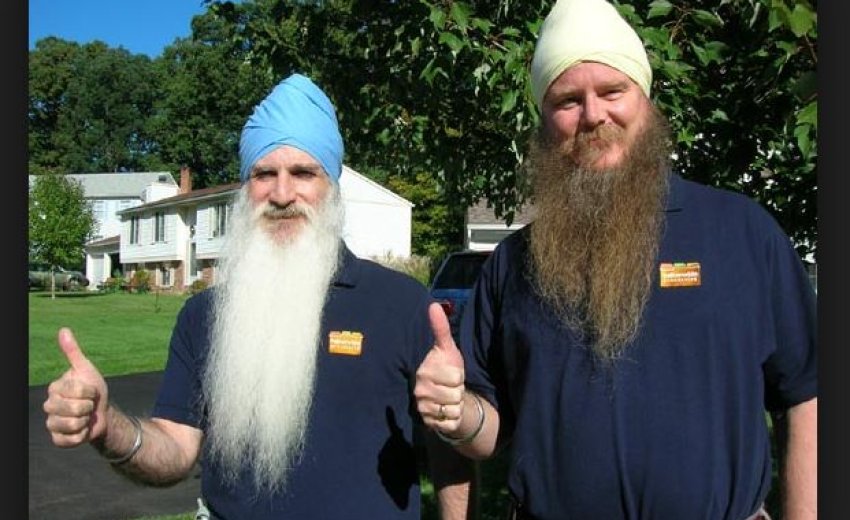The conflict between modern ideals of beauty and the requirements of the Sikh faith came up in a prior post. Recently, Sukhmandir Kaur Khalsa spoke eloquently on this issue in an Arkansas publication. Excerpted below are Khalsa’s perspectives on hair, beauty, and truth.
“I liken the inherent programming of the body’s ability to grow hair to truth,” Kaur said. “Truth always asserts itself and cannot be covered for long by a falsehood. Similarly, we can shave, pluck, bleach, color, trip, tweeze, and wax hair, but it will continue to be true to its programming. The hair follicle must be killed or removed to prevent hair from appearing on the face or body. . .”
Kaur had trouble with her own self-esteem in the beginning. “I had a lot of difficulty embracing my natural identity,” she said, “until I realized through a series of experiences that I was disgracing and defacing my God-given natural beauty.”
She said she developed a high degree of self-confidence through her self-acceptance. “I realize,” she said, “that many women do not have the confidence to face the world without masking themselves with cosmetic makeup and procedures such as hair removal. . .” [link]
“We are programmed to have low self-esteem from birth by society and media advertising on behalf of cosmetic corporations,” Kaur said. “It’s all about dollars. We spend much more time hating than loving ourselves and are wrapped in a daily neurosis that we try to dispel with cosmetics and hair removal.”
She wishes men and women could accept themselves to the same degree they are willing to accept her. When asked if she encounters prejudice in our society, she said she has experienced a mixture of responses from others, including awe, amazement, curiosity, confusion, anger and good-natured teasing, but that for the most part, she is treated with a high degree of respect. People are more curious about her turban than her facial hair, she finds.
“It would be so freeing to assume unconditional love as a birthright,” Kaur said. “What could possibly be easier than being completely natural, yet it seems it is the one thing people have the most difficulty doing.” [link]
The author of the article talks about hair as a taboo subject. I’d never really thought of it as such, but maybe it is in Arkansas.
What’s more interesting is how the author frames the role of the men in our lives. She/he claims that “when a woman is willing to talk, it is sometimes her husband who objects.” I know that women perpetuate silly notions of beauty amongst ourselves… but it’s generally because of some animal form of competitiveness. It’s for the purpose of trying to be “attractive” to the opposite sex. So how can we expand notions of beauty for both men and women in the mainstream Sikh community?
